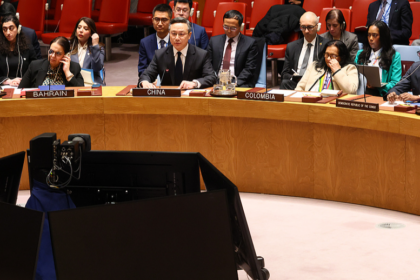Tokyo Tops Global Rankings as the Ultimate Workation Destination
In a world where the boundaries between work and travel are increasingly blurred, Tokyo has emerged as the world’s best city for a “workation” in 2025. This recognition comes from the International Workplace Group’s (IWG) annual Work from Anywhere Barometer, which evaluates cities across the globe for their ability to support remote work while offering enriching experiences outside the office. Tokyo’s win is not just a testament to its technological prowess, but also to its unique blend of culture, safety, and new policies designed for the digital nomad era.
Workation—a portmanteau of “work” and “vacation”—has become a defining trend of the post-pandemic era. Professionals are no longer tethered to traditional offices, instead seeking destinations that allow them to remain productive while exploring new environments. Tokyo’s top ranking signals a shift in what remote workers value: seamless connectivity, vibrant culture, and the freedom to stay longer and immerse themselves in a new locale.
What Makes Tokyo the World’s Best Workation City?
Tokyo’s ascent to the top of the workation rankings is the result of a combination of factors that cater to the needs of modern remote workers. The IWG’s 2025 survey scored 40 global cities on 12 key criteria, including:
- Broadband speed and digital infrastructure
- Transport efficiency and costs
- Availability and cost of flexible workspaces
- Access to nature (beaches, mountains, parks)
- Climate and sustainability
- Accommodation, food, and daily living costs
- Safety and happiness index
- Cultural quality and experiences
- Availability and cost of digital nomad visas
Tokyo scored an impressive 91 out of 120, outpacing other global hotspots like Rio de Janeiro, Budapest, Seoul, and Barcelona. The city’s strengths are clear: lightning-fast internet, world-class public transport, a reputation for safety, and a rich cultural landscape. But perhaps the most significant development is Japan’s new digital nomad visa, introduced in April 2024, which allows remote workers to stay in the country for up to 12 months—longer than many competing destinations.
Broadband and Digital Infrastructure
Tokyo is renowned for its technological innovation, and this extends to its digital infrastructure. The city boasts some of the fastest broadband speeds in the world, ensuring that video calls, large file transfers, and cloud-based work are seamless. This is a critical factor for remote professionals who rely on uninterrupted connectivity to collaborate with teams across time zones.
Transport and Accessibility
Efficient, punctual, and extensive, Tokyo’s public transport system is often cited as a model for other cities. The city’s trains, subways, and buses connect not only its sprawling urban neighborhoods but also provide easy access to nearby mountains, beaches, and national parks. This proximity to nature means that workationers can balance productive workdays with weekend escapes to scenic landscapes.
Safety and Quality of Life
Safety is a top concern for travelers and remote workers alike. Tokyo consistently ranks among the safest major cities in the world, with low crime rates and a strong sense of public order. Combined with a high happiness index and a culture that values hospitality, the city offers peace of mind for those staying for extended periods.
Cultural Richness and Experiences
Tokyo is a city where tradition meets innovation. From ancient temples and cherry blossom festivals to cutting-edge art galleries and Michelin-starred restaurants, the city offers endless opportunities for cultural immersion. This richness is a major draw for workationers seeking more than just a change of scenery—they want to experience life as a local, even if only temporarily.
The Digital Nomad Visa: A Game Changer
One of the most significant factors in Tokyo’s rise as a workation hub is Japan’s new digital nomad visa. Launched in April 2024, this visa allows remote workers and freelancers to stay in Japan for up to 12 months, far surpassing the typical tourist visa duration. The visa is competitively priced and designed to attract skilled professionals from around the world, making it easier than ever to live and work in Tokyo.
Mark Dixon, founder and CEO of IWG, explained the significance of this shift:
“With the rise of hybrid working and cloud technology, employees now have the freedom to choose to work from anywhere, at any time. The workation trend is here to stay.”
How the Workation Trend is Reshaping Global Work Culture
The concept of workation has evolved rapidly since the COVID-19 pandemic forced a global experiment in remote work. What began as a necessity has become a lifestyle choice for millions. According to IWG’s survey, 60 percent of hybrid workers are more likely to extend a holiday to work remotely compared to last year, and 86 percent say the availability of flexible workspaces is a major factor in choosing a destination.
This shift is not just about convenience—it’s about productivity and wellbeing. The IWG report suggests that workplace flexibility can improve productivity by up to 11 percent. Workers who can choose their environment are less likely to experience burnout and more likely to maintain a healthy work-life balance.
Key Factors Driving the Workation Boom
- Technological Advances: High-speed internet and cloud-based tools make it possible to work from virtually anywhere.
- Changing Attitudes: Both employers and employees are embracing flexible work arrangements as a permanent feature, not a temporary fix.
- Policy Innovations: Digital nomad visas and streamlined immigration processes are making it easier for remote workers to live abroad.
- Desire for Experience: Younger generations, in particular, value experiences over possessions and seek destinations that offer both professional and personal growth.
Tokyo’s Unique Appeal for Remote Workers
While many cities are vying for the attention of digital nomads, Tokyo stands out for its ability to combine business efficiency with lifestyle perks. The city’s coworking spaces are not just plentiful—they’re designed with comfort, productivity, and community in mind. From sleek corporate hubs in Shibuya and Marunouchi to cozy, creative spaces in Shimokitazawa and Nakameguro, there’s an environment for every type of worker.
Beyond the workspace, Tokyo’s culinary scene, nightlife, and cultural festivals provide endless opportunities for exploration. The city’s proximity to natural attractions means that a weekend hike in the mountains or a day at the beach is always within reach. This balance between urban excitement and natural beauty is a key reason why Tokyo appeals to workationers seeking both productivity and adventure.
Comparing Tokyo to Other Top Workation Cities
Tokyo’s top ranking is part of a broader trend, with cities around the world competing to attract remote workers. The 2025 IWG Work from Anywhere Barometer’s top 10 cities are:
- Tokyo, Japan (91/120)
- Rio de Janeiro, Brazil (90/120)
- Budapest, Hungary (89.5/120)
- Seoul, South Korea (87.5/120)
- Barcelona, Spain (87.5/120)
- Beijing, China (87/120)
- Lisbon, Portugal (86.5/120)
- Rome, Italy (85/120)
- Paris, France (84.5/120)
- Valletta, Malta (84/120)
Each city offers a unique mix of infrastructure, culture, and lifestyle. For example, Seoul’s fast internet and efficient transport have propelled it into the top five, while Rome and Paris have entered the rankings thanks to new digital nomad schemes. Cities like Singapore, Jakarta, Manila, Mumbai, and Hong Kong are also gaining recognition in Asia for their digital infrastructure and vibrant cultures.
What Sets Tokyo Apart?
While many cities offer fast internet and coworking spaces, Tokyo’s combination of safety, cultural depth, and the new digital nomad visa sets it apart. The city’s ability to cater to both business and leisure needs—without compromising on either—makes it uniquely attractive to remote professionals.
As noted by Time Out Tokyo:
“Tokyo’s proximity to mountains, coastal regions, and national parks also contributed to its top ranking.”
The Broader Impact: Tokyo’s Rise as a Global Tech and Talent Hub
Tokyo’s recognition as the best workation city is part of a larger trend: the city’s growing status as a global hub for tech talent and innovation. According to a recent report by Colliers, Tokyo ranks among the top 10 global markets for tech talent, ahead of cities like Washington and just behind Dublin. In the Asia-Pacific region, it is surpassed only by Beijing and Bengaluru.
This influx of tech professionals and digital nomads is reshaping Tokyo’s economy and culture. Companies are investing in coworking spaces, digital infrastructure, and services tailored to the needs of a mobile, international workforce. The city’s openness to global talent is also fostering new collaborations and innovations, further cementing its position as a leader in the digital economy.
Challenges and Opportunities
While Tokyo’s rise as a workation destination brings many benefits, it also presents challenges. The influx of remote workers can strain housing markets and public services, and there is a need to ensure that the city remains accessible and welcoming to both locals and visitors. However, with thoughtful planning and continued investment in infrastructure, Tokyo is well-positioned to maintain its status as a top destination for years to come.
In Summary
- Tokyo has been named the world’s best city for a workation in 2025 by the International Workplace Group’s Work from Anywhere Barometer.
- The city’s strengths include fast broadband, efficient transport, safety, cultural richness, and a new digital nomad visa allowing stays of up to 12 months.
- Workation is a growing trend, with more professionals seeking destinations that combine productivity with lifestyle and cultural experiences.
- Tokyo’s rise reflects broader shifts in global work culture, with flexibility, technology, and experience-driven living at the forefront.
- The city’s status as a tech and talent hub is attracting international professionals and fostering innovation.
- With continued investment and thoughtful policies, Tokyo is set to remain a leading destination for remote workers and digital nomads worldwide.












